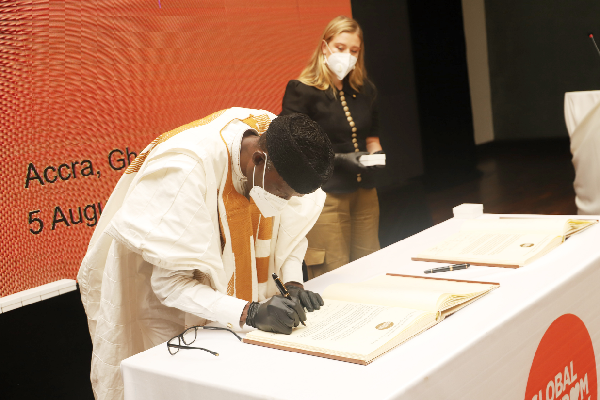
14 Religious leaders against modern slavery
Fourteen religious leaders from four African countries have jointly affirmed their commitment to stand against modern slavery in any form and manner across the continent and the world at large.
The leaders, from Ghana, Cote D’Ivoire, Nigeria and the Democratic Republic of Congo, met in Accra last week and signed the Joint Declaration of Religious Leaders Against Modern Slavery — the first signing in Africa.
Modern slavery is an umbrella term that includes human trafficking, domestic servitude, child labour as well as forced and child marriage.
According to the Global Freedom Network, a non-governmental organisation, more than 40 million people are affected by modern slavery globally.
It was the eighth signing since 2014 when Pope Francis and a top Iraqi cleric, Grand Ayatollah Mohammed Taqi al-Modarresi, joined other faith leaders across the world to declare their support towards ending the practice.
Advertisement
Global Freedom Network, which is the faith arm of the international human rights group, Walk Free, an institution dedicated to accelerating the eradication of modern slavery, hosted the signing of the declaration.
Human dignity
Addressing the gathering before the signing formalities, the Spokesperson for the National Chief Imam, Sheikh Armiyawo Shaibu, said slavery in any form “is a dent on human conscience and an insult to human dignity”.
Making reference to the Quran, he said, human beings were considered as the representation of God on earth, thus, under no circumstance should anyone undergo such inhumane treatment.
While acknowledging that poverty was a major cause of slavery, he rallied all religious leaders to use all platforms at their disposal and engage all stakeholders to ensure that the practice was stopped.
“As religious leaders, our scriptures made us understand that the human being is considered as the representative of God on earth. It is incumbent on us to respect and protect this human dignity, and we must bring all efforts together in order to rid the human community of all forms of slavery,” he said.
Global solution
The Co-founder of Walk Free, Ms Grace Forrest, said the issue of modern slavery was a global problem, which required a global solution, hence the decision to rally the support of religious leaders across the globe.
She said collective effort was the surest way to eradicate the menace, stressing that “slavery is not a condition of humanity, but a man-made problem”.
“There is no passive role in this eradication. We must actively work together so we place an intrinsic value on the dignity of every man and end this disturbing phenomenon which affects more than 40 million people across the globe,” she said.
The President of Challenging Heights, a non-governmental organisation, Mr James Kofi Annan, called for a review of the Human Trafficking Act to make it more robust to conform with modern dynamics to slavery.
He said the law in its current form only focused on perpetrators and victims of the crime, and did not compel organisations to ensure decency in their supply chains by avoiding slavery and exploitation.
